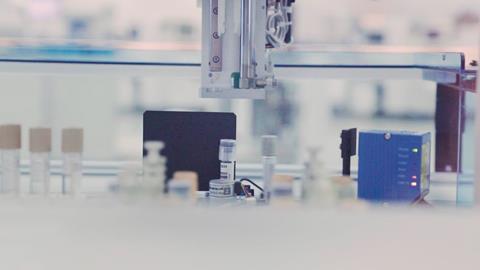Joel Furches recently spoke to Dr Jim Stump, a philosopher of science who works alongside Dr Francis Collins, about his work in the field of scientific philosophy and his belief in God
Jim Stump is a philosopher of science who has his PhD in philosophy from Boston University. He is the senior editor at BioLogos and works shoulder to shoulder with Francis Collins, the scientist who led the mapping of the human genome project, and was the head of the National Institutes of Health.
Science, education and theology
Jim Stump grew up in a world saturated with two certainties: the existence of God and the effectiveness of science. Stump’s father was a junior high science teacher. As an educator, this man instilled an early love and understanding of science in Stump’s mind. Stump’s family were also believing Christians. From the beginning, he was brought up with a strong Christian faith rooted in a Christian worldview.
In Stump’s small high school, bright students were funnelled into maths and science programmes, and his interest in science only increased as he settled into that program. Like his father, Stump pursued a degree in science education. Upon receiving the degree, he spent a year teaching at a missionary school in Leone, West Africa.
In graduate school, Stump took the path of philosophy. But he had his foundations in science and even continued to take some science courses. So it was natural for him to eventually philosophise about science. All along this academic path, Stump continued to have an interest in how science and the Christian faith were related.
Read more:
Can a Quantum Physicist really believe in God?
Is atheism just a ‘lack of belief’ in God?
Does Big Bang cosmology point to a creator?
How a sceptical engineer discovered that science opened a way to faith
BioLogos
Stump eventually became involved with the groundbreaking scientist and Christian, Francis Collins. After Collins’ breakthrough in the mapping of the human genome, he received a flood of questions from both Christians and non-Christians about his thoughts on science and religion.
In an attempt to address this apparent concern, Collins founded BioLogos, and hired Stump as the senior editor. Stump says:
“BioLogos continues to operate at the intersection of science and faith. We are persuaded that God’s two ‘books’ (scripture he inspired, and the natural world he created) are not ultimately in conflict. Much of my time is spent working with scientists, theologians, historians and philosophers who are interested in the academic discipline of science and religion. We do our best to understand contemporary science and to stand in the line of faithful, orthodox Christians. And we attempt to explain and otherwise convey science to the Church and show that robust, serious Christian faith can be maintained in the context of what science has discovered about the world.”
Science or scientism?
In his position as senior editor, Stump has authored seven books and countless articles related to science and Christianity. He finds God to be a necessary part of the scientific process, since science cannot operate without transcendent references such as maths, logic, design and natural law:
“My work is heavily involved in interpreting and explaining science, and worldview considerations have a significant impact in this. As Christians, we don’t think that matter and energy is all there is to reality. So scientific explanations will necessarily be limited and incomplete. Science is very good at describing and explaining material processes, but cannot be allowed to claim to be the ultimate authority on all aspects of reality. That is scientism—not science—and Christians must resist it.”
Get access to exclusive bonus content & updates: register & sign up to the Premier Unbelievable? newsletter!
An internal conflict
In his work, Stump receives as much criticism from Christians as he does from non-Christians. This is because BioLogos embraces a classical view of evolution – something that is largely rejected in Christian circles in the United States. Stump stresses that he does not believe that this view compromises biblical integrity, and that these views should be given space for rational discussion within the Church rather than outright dismissal:
“There are legitimate theological concerns that need to be addressed, and the Church must provide safe spaces for honest discussion about them instead of vilifying those who have worked to understand the created order. The gospel does not stand or fall on one’s position on creation and evolution—the how and when of creation has been debated within the Church for more than 1,500 years. But if the Church denies an aspect of reality that has become abundantly clear to scientists, our witness will suffer as we exchange the truth for a lie. Harmony is possible between contemporary science and biblical, Christian faith.”
Joel Furches is an apologist, journalist and researcher on conversion and deconversion, based in the USA.

























